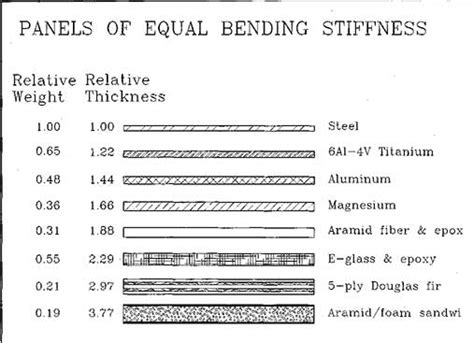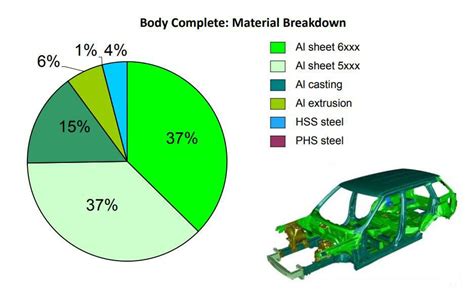how thick is the sheet metal on a car Automotive sheet metal once ran in the range of 18-gauge, which was 48 thousandths of an inch thick (actually 0.0478 inch). 20-gauge became common in more recent . White Kitchen Cabinets Stainless Steel Backsplash - Design photos, ideas and inspiration. Amazing gallery of interior design and decorating ideas of White Kitchen Cabinets Stainless .
0 · typical auto frame steel thickness
1 · standard thicknesses of sheet metal
2 · car sheet metal thickness mm
3 · car body sheet metal thickness
4 · car body panel steel thickness
5 · auto body sheet metal thickness
6 · auto body sheet metal gauge
7 · 20 gauge automotive sheet metal
Parisloft Farmhouse Wood and Metal Keepsakes Storage Box, White Metal Box Body with Brown Wood Lid and Engraved Text, 7.8 x 5.8 x 4 Inches
What thickness or gauge is standard automotive sheetmetal on American vehicles, such as a door skin or fender skin. I'm practicing up on my Mig and am trying to determine .

The thickness of automotive sheet metal directly influences the weight of the vehicle. Thicker sheets add to the overall weight, affecting fuel efficiency and handling. However, it’s a delicate dance, as thicker metal also . If you have a set of calipers you can measure the thickness of the existing metal and then order what you need. Here's some of the common gauges and corresponding . Automotive sheet metal once ran in the range of 18-gauge, which was 48 thousandths of an inch thick (actually 0.0478 inch). 20-gauge became common in more recent .How Thick Is Your Sheet Metal? Most reproduction sheet metal is thinner than original sheet metal. The typical thickness of products on the market today is generally between 18 to 22 gauge metal, with the most common being 20 gauge.
An important factor is the gauge of the sheet metal. The gauge refers to the metal’s thickness, with lower gauge numbers indicating thicker sheets. The appropriate gauge will depend on the specific application and the . ^yup. though the savings from using thinner sheet metal makes a lot less difference to the speed of the car than, say, a many year newer hundred more hp engine. or even shorter gearing. basically, there's no apples to apples comparison other than putting 20 lbs of sandbags in the back seat of an identical car.
Whether it be a structual area or flat spot on the frame, as others have said, there are no advantages to a thicker metal when the surrounding metal is thinner. (Unless a person isn't so handy with a welder & burns thru thinner .When it comes to sourcing sheet metal for car repair, it’s important to choose the right material that matches the original specifications of your vehicle. Common options include steel, aluminum, and galvanized steel, each with its own .
How thick is auto body sheet metal? Sheet metal used on older car bodies typically ranges from a gauge of 16 to 18. Sheet metal used on the auto body of new vehicles and when aftermarket body work is performed tends to be between 20 and 22 gauge.
Strength in the floor pan doesn't come primarily from sheet metal thickness. Properly constructed sub framing and or bead rolling is the key. Traditions Racing, Apr 14, 2011. SHARE POST #7. . We believe the entire car,ready to drive, should still be under 4,000 lbs. There are still zero miles on it so I can't address stress cracks. The entire . 22 is about standard on "newer" stock and can be welded with a "good" wire welder on likely the lowest setting but be aware of burn thru's. So back off with the gun to reduce the heat some. If it's galvanized metal or e-coat,that will have to be ground down to bare metal to weld. I know some guys that use 18 gauge all the time but I find it a little too heavy (thick) to match up with the factory sheet metal. On inner structures 16 gauge seems to be about right. If I’m making reinforcement gussets for the frame or something I .
Especially remember Rule 1: Be polite and civil. Be polite and courteous to each other. Do not be mean, insulting or disrespectful to any other user on this subreddit. Thicker sheet metal is actually cheaper to stamp into finished shapes because fewer die strikes are needed. Most old cars in the 50's-80's had exterior panels with combinations of curves and creases that were a challenge for tool and die operations. That is classic car thickness, not modern car metal. 1.0mm sheet will be plenty! ;-) Reactions: arther dailey and Darrell Slaney. pedrobedro Man at Matalan. Messages 12,934 Location CX near Chesterfield. Aug 18, 2010 #6 1.2mm is easier to weld with 0.6mm wire if you weld to the edge of the thicker material and let it run onto the thinner. I . The local auto parts store in my area sells 22 gauge sheets of metal for this purpose. I checked eastwood and they have 22 gauge and also 20 gauge available for making patch panels. I am not sure what gauge of metal I should use to fab up patch panels for my buick. Any help would be appreciated. Thanks everyone. Oh here's a pic of the car.
The sheet metal was thick then, with the paint layer sometimes as thick as today's sheet metal !! (from google images) A Honda City that met with an accident at a speed of 100 plus kmph, killing three of its four occupants at Nagpur in July 2014. Copper also is a dissimilar metal with totally different properties than steel, so you're not going to weld to it with steel. You can buy copper backing plates at most industrial welding supply stores. Given sufficient heat, even a 3/8" thick copper plate will break, but that was with a 460V three-phase MIG running 1/16" duo-shield on some big . Sheet metal hydroforming has found applications in various industries, including automotive, aerospace, electronics, appliances, and more. In the automotive industry , for example, hydroforming is commonly used to manufacture exhaust manifolds, frame rails, suspension components, instrument panel support, engine cradles, and exhaust pipes. So thin that when drying/washing your car by hand, the sheet metal will flex. The roof is especially bad. I leaned over roof to wipe down the car and the sheet metal indented but luckily bounced back. . The metal on the car was thick and solid. After washing the car, one has to be very careful when drying so as to not to dent the roof metal .
The degree of damage to a car in all these cases depends on the car body sheet metal thickness. With the development of the car industry, the growth of the cost of materials and safety requirements strengthening, this value has significantly reduced. For example, the 1940s - 1960s cars had 1-2 mm body sheet metal, while in modern cars it . Goodmark trunk pans are .039 thousands thick, NPD floor pan toe boards,the toe boards are tagged [toe board-floor pan] so I'm assuming the floor pans are the same thickness as the toe boards and the toe boards are .033 .
If you have a set of calipers you can measure the thickness of the existing metal and then order what you need. Here's some of the common gauges and corresponding thickness of sheet steel: GA. Thickness 12 - 0.1046 13 - 0.0897 14 - 0.0747 15 - 0.0673 16 - 0.0598 17 - 0.0538 18 - 0.0478 19 - 0.0418 20 - 0.0359 21 - 0.0329 22 - 0.0299 Posted: Thu Oct 28, 2010 3:52 pm Post subject: Sheet Metal Thickness & Gauge, Quality of Repair Panels: . Replacement Rust Panel, Unknown, was on car when I purchased it 19 Gauge .0437 ----- Inner Heater Channel (with nuts for floor pan) Factory 19 Gauge .0437 . Thanks for all the input guys. I am still a little ways away from cutting the firewall. I am still in the process of leveling the body/frame and stripping all the 30 years of crud off the car. Hello All, I'm working on 18 ga. sheet metal project where a stamped recess in the sheet metal has become distorted and flattened (no recess). I would like to know how I can restore the recess back into the sheet metal. The recess dimensions are approximately 1 .

Sorry if this has been posted, but does any one know for fact the sheet metal thickness (gauge) that Toyota-Nissan_Dodge-Chev/Gmc-Ford uses on their current year models/ Different gauge on tail gate/bed sides doors/ fenders. . So now if you're in a small car, you're driving a deathtrap, trucks aren't trucks anymore, and all cars suffer major .
typical auto frame steel thickness
I have done patches using what ever I found in the trash (microwave sides etc.) or junk hoods. After you are done cleaning the metal you have to try to work it. Working with new metal is much easier. I found a metal supply place and bought a couple of 4x8 sheets of CRS both 18 and 20g. I was surprised how much easier the metal was to work. There’s also a “thick-to-thick” plug weld (16-gauge to 16-gauge) in the vertical position. The plug weld is made in an 8-millimeter hole punched out of the top coupon.
0.8 gas-less (or 0.6 or 0.9) is not a process I have had any success with for welding car body work and I wouldn't recommend it. 0.8 (or 0.6) with 5% argon gas will work very well.Discuss Cars in India and other automobile news here. 🚗-🇮🇳 Auto enthusiasts discuss sedans, SUVs, hatchbacks, motor racing etc in Car India scene here on reddit. Any automobile that moves on four wheels can be discussed here. Bikes related discussion is not allowed here. Get a Miller or Lincoln wire feed welder with gas bottle. Even if you have to buy good used one. Either should be able to be adjusted down to at least to 1/32" thick metal, which is thinner than VW sheet metal.

electrical junction box nz

$21.05
how thick is the sheet metal on a car|auto body sheet metal gauge